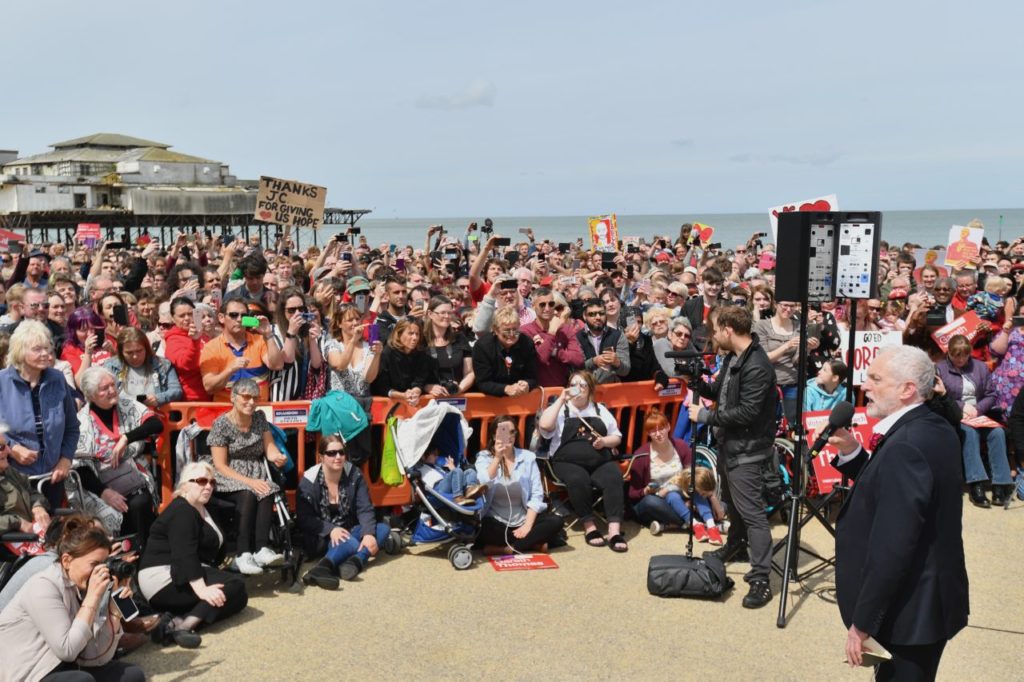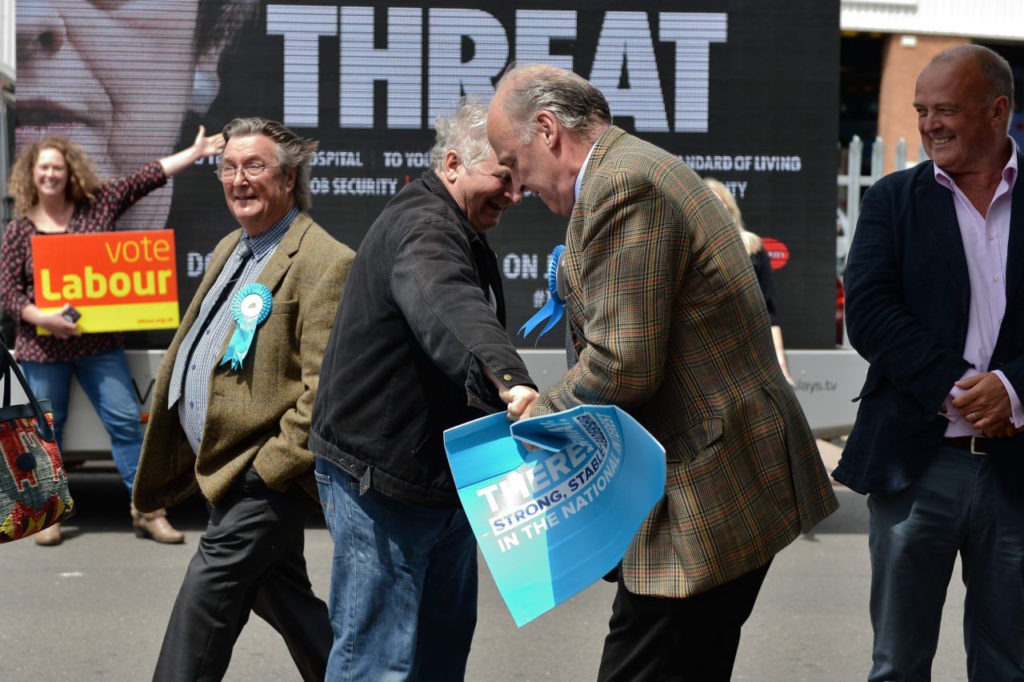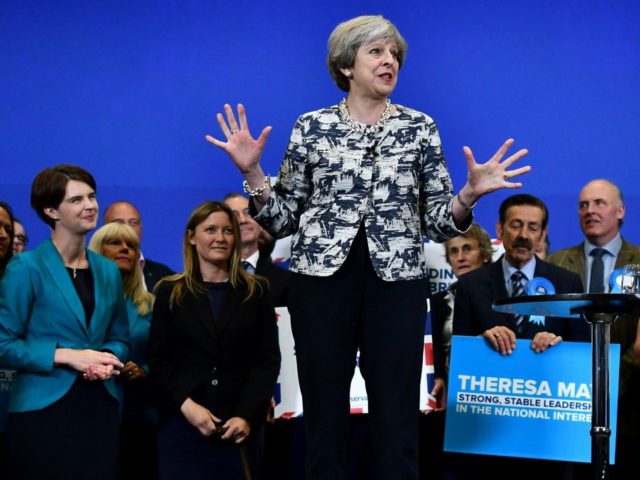LONDON (AP) — Britain’s political leaders crisscrossed the country making final appeals to voters on the last day of the general election campaign Wednesday, with security dominating the agenda in the wake of the London Bridge attack.
The main contenders are battling over who will keep Britain safer from an ever-morphing terrorist threat.
Conservative Prime Minister Theresa May has promised to crack down on extremism if she wins Thursday’s vote – even if that means watering down human rights legislation.
“We are seeing the terrorist threat changing, we are seeing it evolve and we need to respond to that,” May said.
Her main opponent, Labour Party leader Jeremy Corbyn, said the real danger comes from Conservative cuts to police budgets.
“We won’t defeat terrorists by ripping up our basic rights and our democracy,” Corbyn said.
May began the day with an early morning visit to Smithfield meat market in London, where she was heckled by some butchers shouting “vote Labour.” She later addressed several gatherings across England, accompanied by her husband Philip, who has kept a low profile through much of the campaign.

Labour party leader Jeremy Corbyn speaks on the Promenade on June 7, 2017 in Colwyn Bay, Denbighshire, United Kingdom. (Anthony Devlin/Getty Images)
May called the snap election in a bid to boost the Conservative majority in Parliament, which May says will strengthen Britain’s hand in divorce talks with the European Union.
“Get those negotiations wrong and the consequences will be dire,” she said.
Labour has had a better campaign than many expected, with opinion polls showing a narrowing of the gap between the party and the Conservatives. Corbyn, widely written off at the start of the campaign, has drawn thousands of people to upbeat rallies and energized young voters with his plans to boost public spending after years of Conservative austerity.
“They underestimated us didn’t they?” Corbyn told supporters in Glasgow. “They underestimated the good sense of ordinary people, ordinary people all over Britain.”
Corbyn planned to address six rallies in England, Scotland and Wales, ending in his home ground of Islington, north London on Wednesday night.
Polls will be open Thursday from 7 a.m. to 10 p.m. (0600GMT to 2100GMT), with all 650 seats in the House of Commons up for grabs.
Corbyn said Thursday’s vote offered a clear choice between “another five years of a Tory government, underfunding of services all across the UK … or a Labour government that invests for all, all across Britain.”
Attacks in Manchester on May 22 and London on Saturday have put the threat from international terrorism at the center of the campaign.
Corbyn has criticized cuts to the police under the Conservatives, which saw the number of officers fall by almost 20,000 between 2010 and 2016.

A labour party supporters attempts to tear up a sign belonging to a Conservative supporter outside The Space on June 7, 2017 in Norwich, United Kingdom. (Chris J Ratcliffe/Getty)
The Tories, meanwhile, have increased their attacks on Corbyn’s security record. He opposed British military interventions in Afghanistan, Iraq and Libya, wants to scrap Britain’s nuclear arsenal and shared platforms with Irish republicans in the years when the IRA was setting off bombs in Britain.
Conservative-supporting newspapers went on the attack against Corbyn on Wednesday. The Daily Mail branded him and senior colleagues “apologists for terror,” while the Daily Express exhorted: “Vote May or we face disaster.”
It’s unclear whether Britain’s anxiety about terrorism will benefit May, as the incumbent prime minister, or whether criticism of her record in government will hit home.
“I was going to vote Labour and I’m still going to vote Labour,” said Tom Lewis, an insurance broker walking in Borough, the London neighborhood hit in Saturdays’ attack.
“I think that the idea of the Tories being strong on security is a bit of a red herring because they are unwilling to pay for more police. Fundamentally that’s what you need for security. Cutting human rights doesn’t necessarily increase security – it can very often decrease security.”
The latest opinion polls vary between a solid Conservative lead and a dead heat. The difference depends largely on the predicted size of turnout among young people, traditionally the least likely to vote.
One of Corbyn’s top allies, Diane Abbott, stepped down temporarily because of illness, the party said Wednesday.
Abbott, Labour’s spokeswoman on law and order, has been ridiculed by opponents for poor performances in interviews during the campaign. In one she said Labour would hire more police officers at a cost of 30 pounds ($39) each. She amended that with a larger but also incorrect figure.

COMMENTS
Please let us know if you're having issues with commenting.